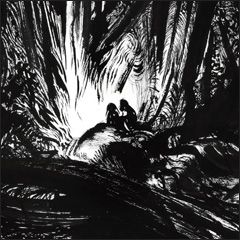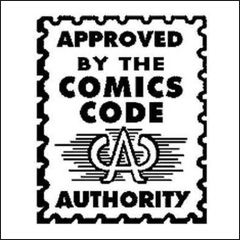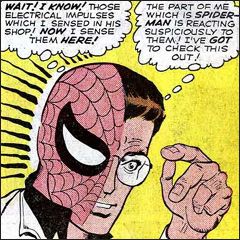Publishing | I talked with TOON Books founder Francoise Mouly about her new imprint, TOON Graphics, which will feature "visual books" (picture books and comics) for readers ages 8 and up. The line launches with three titles: Theseus and the Minotaur, by Yves Pommaux, Cast Away on the Letter A, by Fred, and Hansel and Gretel, retold by Neil Gaiman and illustrated by Lorenzo Mattotti. [Publishers Weekly]
Commentary | Former DC Comics senior editor Joan Hilty tackles the issue of sexism in comics and calls for publishers to include more women in their senior editorial rank:. "Women are getting the bestselling books into stores and greenlighting the million-dollar movie franchises, but they're barely represented among the creative executives who map out the universes and storytelling strategies. That's where you cement broad-based, long-term loyalty to authors and characters, tap new audiences and trends, and grow readership, without which none of those books or movies would exist." [The Guardian]
History | Saladin Ahmed takes a look at comics before and after the Comics Code, and finds the pre-Code titles to be teeming with diversity. The Code put an end to that: "The message was clear: If comics were to be tolerated in this new postwar order, they had to be purged of assertive women, of people of color, of challenges to authority, and even of working-class, urban slang. And so the Comics Code hacked and mangled comics until they fit into the patriarchal, conservative, white suburban social order that was taking over every other sphere of American life." The end of the Code has not restored comics to their former glory; instead, mainstream publishers have simply seen it as "an opportunity to revel in cheap violence and exploited female bodies." [BuzzFeed]
Creators | Three Michigan comics shops have put together a collective to help comics creators produce and publish their work. Collector's Corner of Midland, Cashman's Comics of Bay City, and Coy's Comics of Saginaw have joined forces to create the Michigan Comics Collective, and their first work will be an anthology to be published in August. [Midland Daily News]
Comics | Bilge Ebiri looks at the origin and enduring popularity of Spider-Man. Blake Bell says a big part of the appeal is that the comic is as much about Peter Parker as Spider-Man: "Nowhere else in history had you seen the alter ego get that kind of face time. The alter egos of Batman and Superman were largely superfluous, focusing mostly on, 'Will someone discover them some day?' But with Peter Parker, fans could really imagine that they were that character." [Rolling Stone]
Creators | In the conclusion of a three-part interview, Wendy and Richard Pini talk about bringing their long-lived comic Elfquest to an end. [Comics Bulletin]
Publishing | The alumni magazine of Chicago's Columbia College profiles Yeti Press, a new and growing small press that publishes comics by young Chicago creators, most of them recent Columbia graduates. [Demo Magazine]
Comics | The resurgence of the comics market in India shows some parallels with and some differences from the U.S. comics market; the industry went into a slump in the 1990s because of distribution problems, but digital is helping publishers stage a comeback. The audience has also shifted, from children to the 15-30 age group, and comics are getting darker as a result. [Times of India]
Digital comics | Now that comiXology has been acquired by Amazon — and cut iTunes out of the picture — Tim Beyers speculates that Apple may step up its efforts to sell digital comics directly to readers. [The Motley Fool]
Conventions | Chicago Comic & Entertainment Expo is bigger than New York Comic Con — literally, as Torsten Adair calculates that the Chicago-based con takes up more square feet in McCormick Place than its East Coast cousin does in the Javits Center. [The Beat]




